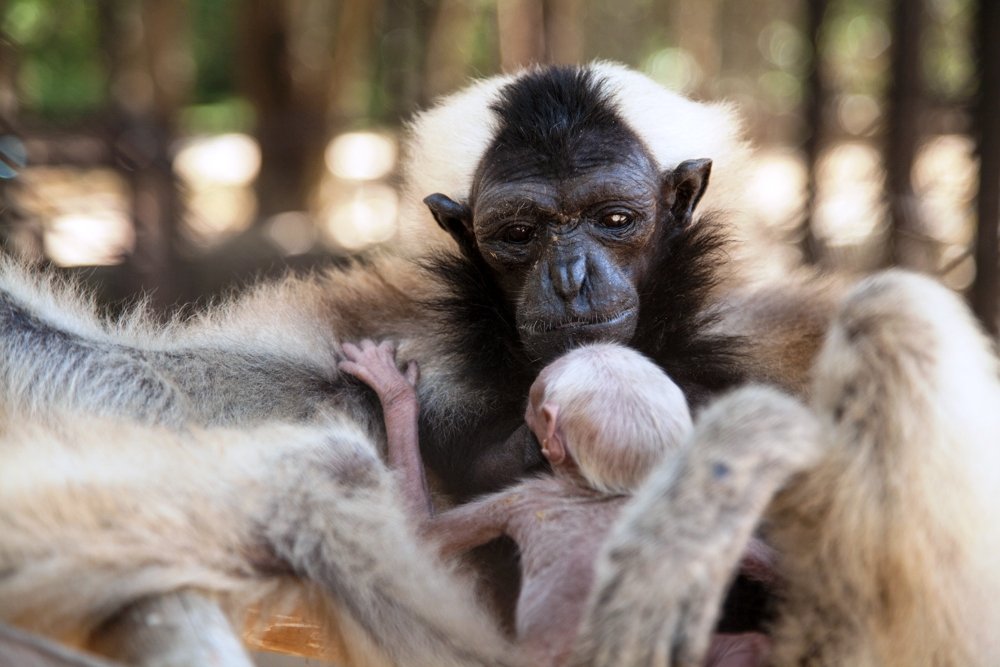By Sheena Thiruselvan | Development Associate
This month we welcomed a new baby Pileated gibbon to the Phnom Tamao Wildlife Rescue Center (PTWRC). He joins several other babies born as part of the gibbon rehabilitation program, which works to rebuild the gibbon population in the wild. Known for the impressive tree swinging and complex vocalizations, gibbons are spectacular primates to observe in the wild. However, due to extensive hunting and habitat loss these magnificent creatures have been listed as Endangered by the IUCN.
Owing to their high demand in the wildlife trade, the Wildlife Rapid Rescue Team (WRRT) often rescues gibbons from wildlife poachers that sell them as pets or tourist attractions in bars and hotels. We also receive many donations of gibbons that have been torn away from their mothers as infants and are kept as pets until owners realize they cannot control these wild animals. In attempts to change the animal’s natural behavior, these gibbons are often mistreated and confined to small areas. Caretakers at the PTWRC work hard to rehabilitate the animals, and house them in spacious enclosures to facilitate natural behavior. These large, natural enclosures enable the process of de-humanization in order to make them suitable for reintroduction into the wild. This program has been largely successful in rehabilitating the gibbons, unfortunately finding suitable habitats for their release has proved to be more challenging. Gibbons by nature are highly territorial, with a home range of about 75 acres. They mate for life and live in small families composed of only the mated pair and a few of their offspring. Due to the widespread habitat destruction and competing gibbon families in available protected land, finding suitable release location has been difficult.
Through outreach and education Wildlife Alliance is working to raise awareness about the dangers of keeping primates as pets and continued habitat destruction. Help us continue to rescue and care for these graceful primates, as well as provide them with the adequate space and rehabilitation they require.
Project reports on GlobalGiving are posted directly to globalgiving.org by Project Leaders as they are completed, generally every 3-4 months. To protect the integrity of these documents, GlobalGiving does not alter them; therefore you may find some language or formatting issues.
If you donate to this project or have donated to this project, you can receive an email when this project posts a report. You can also subscribe for reports without donating.
Support this important cause by creating a personalized fundraising page.
Start a Fundraiser